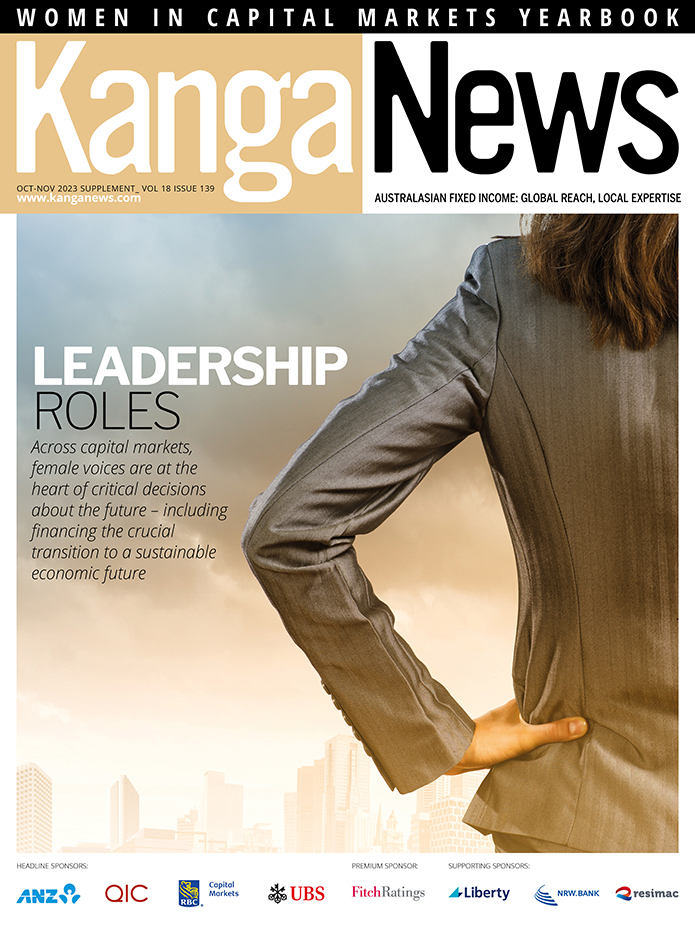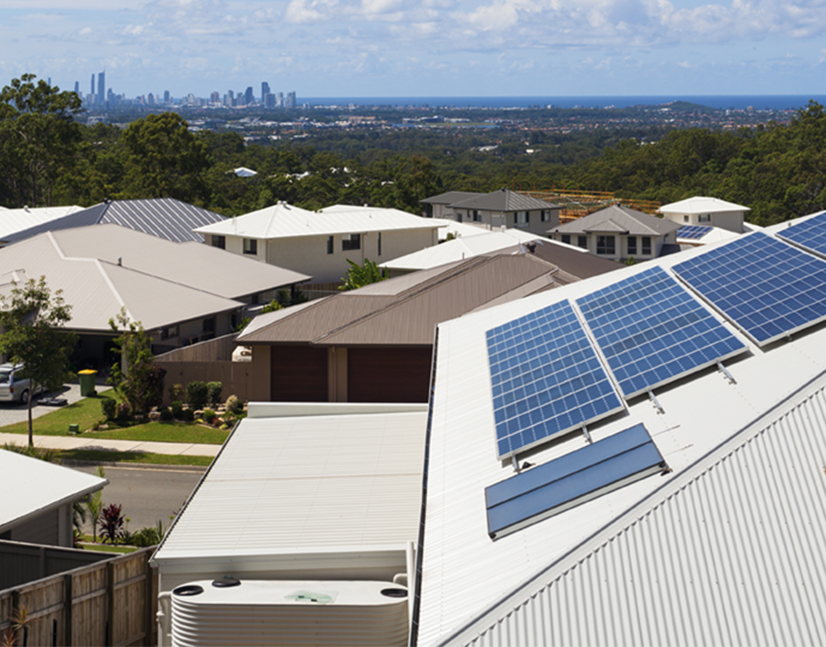
Ashurst centralises sustainability to amplify its impact
Since 2019, Ashurst has had a London-based global ESG and sustainability partner, bringing together the firm’s work in this area of increasing importance to its clients and international capital markets. Anne-Marie Slot, who holds this specialist partner role, and Sydney-based Ashurst capital markets partner, Caroline Smart, discuss how global coordination and Australian market development go hand in hand.
It has long been a favourite saying in the sustainable-finance industry that one day there will no longer be such a thing as sustainable finance: there will simply be finance, which will be required by all parties to take account of, measure and appropriately price environmental, social and governance (ESG) factors. That day may be approaching more quickly even than market exponents once believed.
“ESG is now a corporate-governance issue, a risk issue and a stakeholder issue for so many companies and financiers,” Smart comments. “It is being looked at as a social and economic challenge, many aspects of which can be solved through financing. As a law firm, sustainable finance has moved from being the realm of the DCM team to also take root in the loans team, corporate governance, risk assurance and many other areas.”
The purpose of Ashurst’s ESG practice and Slot’s role is to bring together knowledge and ability from across Ashurst’s practices and jurisdictions, amplify it and thus create a more holistic approach to sustainability in the firm. What Ashurst represents to clients in the ESG space also ties in with the firm’s own commitments.
The rationale for creating the specialist partner role is clear, especially in the context of the urgency of action on global warming. “I am being completely honest when I say I believe it is the moon shot of our generation,” Slot says. “We have this decade in particular to make rapid progress, and lawyers play a key role across all industries.”
The short timeline in which a meaningful response to the climate crisis has to take place is evidence enough that the time for commitments is rapidly passing, replaced by an urgent need for action. This action needs to be material and, given the integral nature of financing to the transition, it also needs to be measurable and reportable.
Ashurst is a longstanding member of the Legal Sustainability Alliance and the Australian Legal Sector Alliance, inclusive movements of law firms in the UK and Australia. It is also a member of various industry-body working groups, including being the sole legal partner to the Climate Bonds Initiative in Australia.
The firm has a stated goal of being “the world’s most progressive law firm”, recognising its responsibility to protect the environment by ensuring the sustainable use and disposal of scarce resources. It does so by carefully managing its supply chain and consumption of resources, and taking a precautionary approach to environmental challenges.
Slot says: “We have reached a really interesting point in the market right now, where I believe there is sufficient awareness and willingness that companies need to be doing something. But there is still a massive amount of confusion about what that something looks like and how to describe it.”
For instance, more than half of global corporations and 60 per cent of world governments have made some sort of net-zero pledge – but plans and infrastructure to deliver are not yet where they need to be. On the investor side, Slot continues, the lack of a “universal language” for climate reporting – an equivalent of generally accepted accounting principles or International Financial Reporting Standards – is holding back progress.
“The background of finance lawyers and practitioners like Caroline can be really helpful – because so much time is spent talking to companies about disclosure,” Slot concludes. “The market has evolved and will continue to evolve – much faster than many think – on ESG labels, how they are used and what kind of emphasis is given to them.”
Reporting, and thus the framework used for reporting, is moving into the mandatory realm in many jurisdictions. The EU taxonomy for sustainable activities is a leading example of efforts to give climate reporting a degree of rigour and quantifiability comparable to financial reporting. New Zealand is working toward a legislated regime of reporting aligned with the Task Force on Climate-related Financial Disclosures.
“We have reached a really interesting point in the market right now, where I believe there is sufficient awareness and willingness that companies need to be doing something. But there is still a massive amount of confusion about what that something looks like and how to describe it.”
Button TextAustralian outcomes
Mandatory climate reporting does not appear to be on the agenda in Australia. But this makes the role of financial markets if anything even more critical.
Even in the absence of strong guidance or mandates from government and regulators, the development of sustainable-finance infrastructure is making it harder for companies to avoid engagement. Sustainable debt has progressed from relatively specialist use-of-proceeds instruments to sustainability-linked structures that are also relevant to issuers in hard-to-abate sectors or that are undergoing transition.
The sustainability-linked bond (SLB) is a relatively new product in the Australian market – just two companies had issued domestically by early November – but Ashurst has advised on a number of sustainability-linked loans. As more issuers seek to align debt capital market funding with sustainability goals, Smart says Ashurst is well placed to offer guidance on the emerging SLB asset class based on the firm’s familiarity with global market developments.
“We start with the ICMA [International Capital Market Association] guidelines and can point to lots of case studies of successful SLBs in the euro market,” she says. “The main thing is that companies nowadays usually have an existing sustainability framework, which means the financing piece becomes about understanding what the issuer wants to do in its business from a sustainability perspective and committing to this objective. Issuers often do not need to come up with anything completely new.”
It is critical, Smart continues, for borrowers and issuers planning sustainability-linked financing to deliver KPIs that combine achievability, measurability and ambition. The point is there is no reason why these should not align closely with sustainability work the company is already carrying out and that is most relevant to it.
For instance, Smart points to H&M’s euro SLB, issued in February this year. This includes three KPIs, one of which requires the issuer to increase its use of recycled materials to 30 per cent by 2025. “It is not just about reducing emissions but doing so in a way that is directly relevant to the business – and using a target the issuer may already have in place,” Smart concludes.
“Companies nowadays usually have an existing sustainability framework, which means the financing piece becomes about understanding what the issuer wants to do in its business from a sustainability perspective and committing to this objective. Issuers often do not need to come up with anything completely new.”
Button TextFinancial nexus
It is also vital that a centralised sustainability practice is relevant to as much of Ashurst’s client network as possible rather than focusing only on the most obvious priority areas. In fact, financial markets are the nexus that unites sustainability across the economy.
Slot’s background is in corporate finance and securities on a global basis: she has worked in New York, London and Hong Kong. Overall, she has more than two decades of experience acting for banks and companies in high-yield debt offerings, green bonds, liability management including consents and tender offers, refinancings, and numerous securities transactions such as US 144A and Reg S debt and equity offerings, as well as mezzanine debt investments and senior credit facilities.
“I think there is a lot of benefit in having someone with experience in finance and capital markets in the global ESG and sustainability partner role. No industry can run without financing – it underpins the entire business ecosystem,” Slot tells KangaNews.
The breadth of Slot’s role also aligns with the sometimes-overlooked social component of ESG. She explains that planning rapid global decarbonisation in a way that is not destructive of regional economic systems is just as valid a consideration as environmental transition alone.
“We have to avoid an unjust transition in which, in effect, Asia is paying for the ongoing economic prosperity of the western world,” Slot adds. “It is this kind of question that really needs a big-picture view through a wider lens – and where it is helpful to have worked on a lot of projects in many places.”
Finance is also critical to sustainable transition because of the way the private sector has taken the lead in recognising the critical importance of this transition. Some global governments are more progressive than others, but Smart argues that leadership in this crucial decade for climate response is being driven by companies and capital.

WOMEN IN CAPITAL MARKETS Yearbook 2023
KangaNews's annual yearbook amplifying female voices in the Australian capital market.












